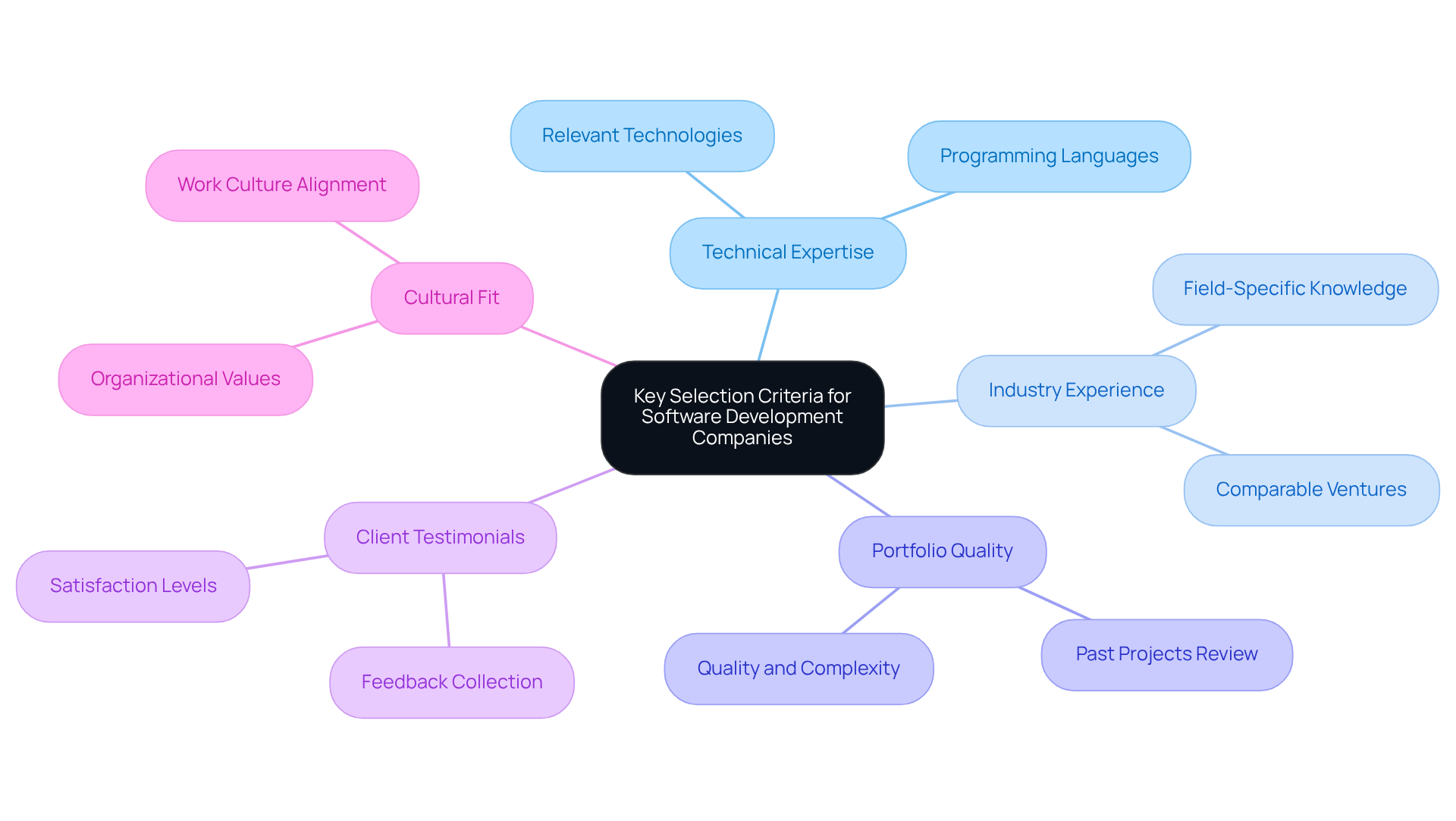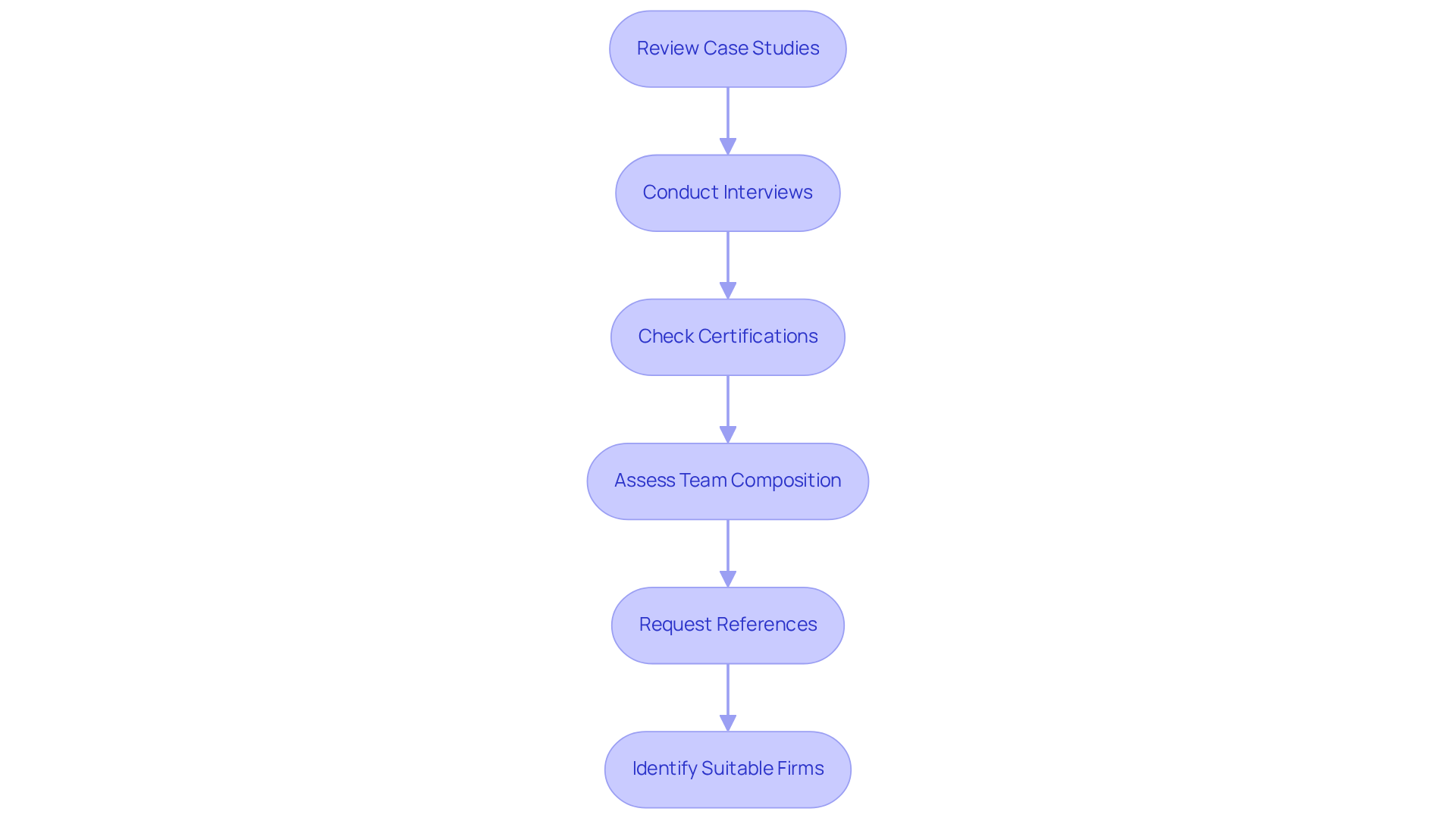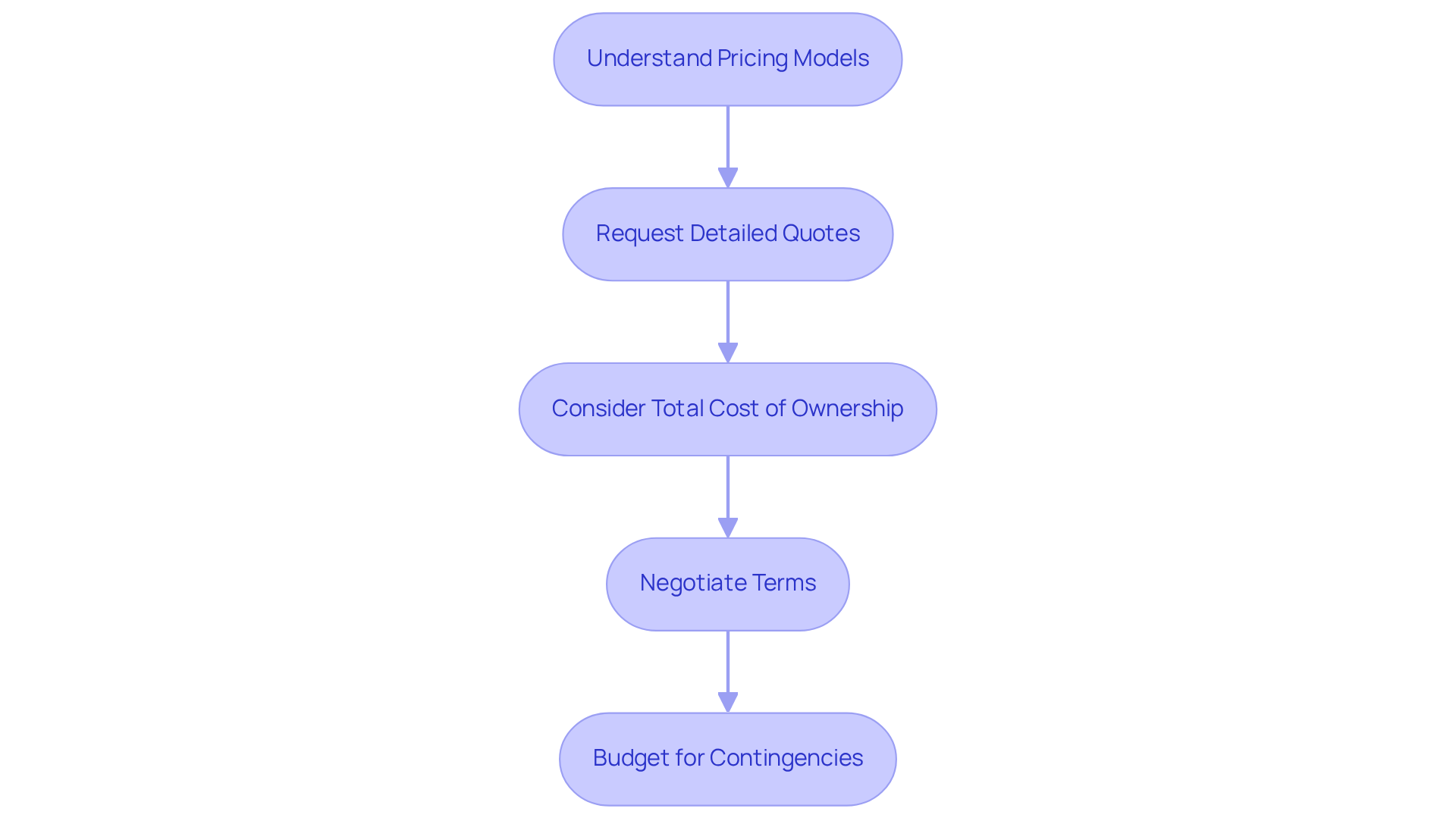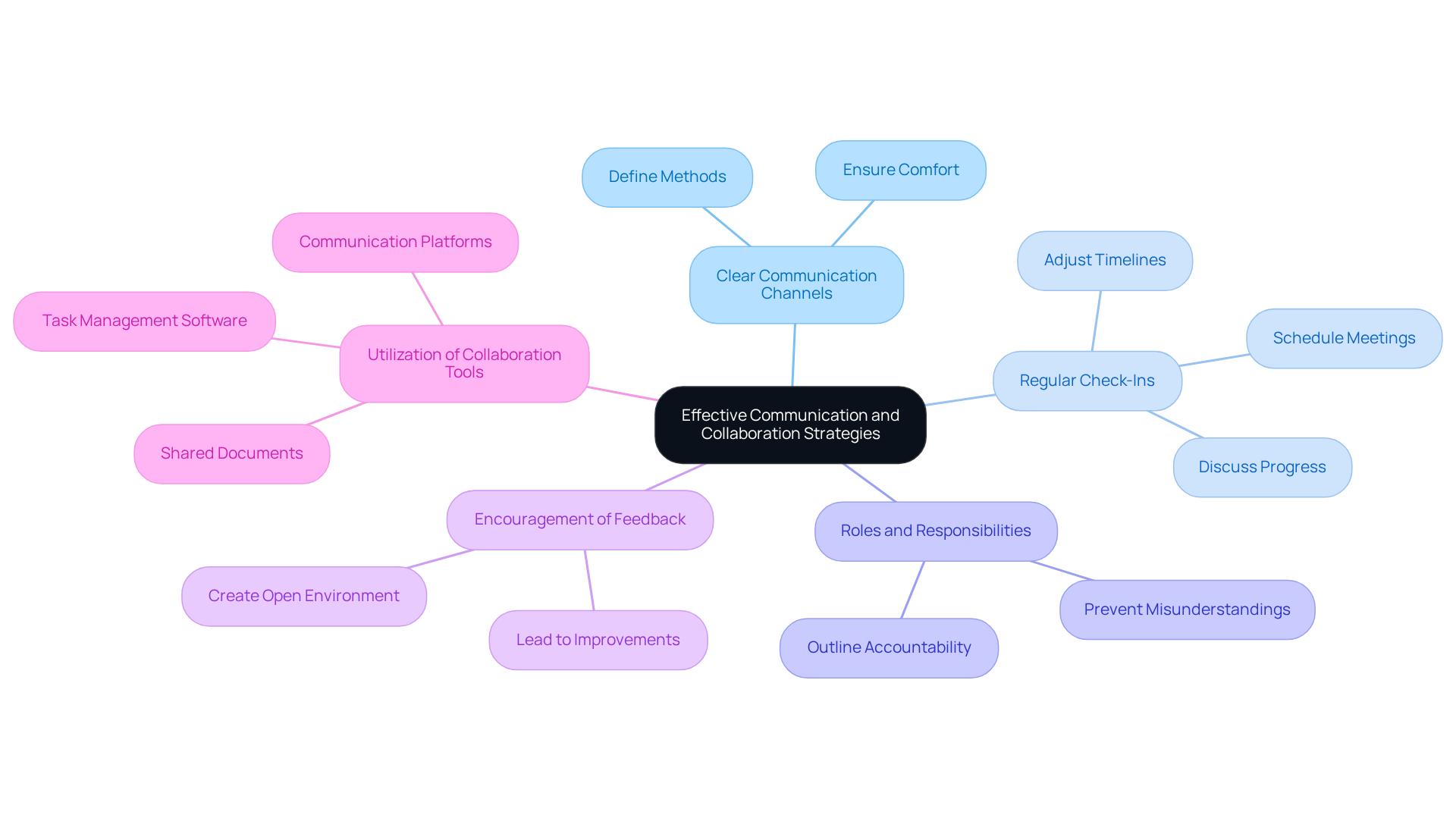AI
our blog
4 Steps to Choose the Right Software Development Company UK

Overview
Selecting the right software development company in the UK presents a significant challenge. To navigate this process effectively, it is essential to evaluate key selection criteria, including:
- Technical expertise
- Industry experience
- Portfolio quality
- Client testimonials
- Cultural fit
This article outlines a comprehensive approach that not only assesses these criteria but also evaluates expertise through case studies and interviews. Furthermore, understanding pricing models and ensuring effective communication strategies are vital components for fostering a successful partnership. By adhering to these guidelines, CTOs can make informed decisions that lead to fruitful collaborations.
Introduction
Selecting the right software development company presents a significant challenge, particularly in the competitive landscape of the UK market. With numerous options at one's disposal, identifying the essential criteria for selection is crucial to ensuring the success of any project. This article outlines a structured approach that not only emphasizes the key factors to consider but also tackles the complexities of aligning technical expertise, budget constraints, and effective communication. As organizations endeavor to find the ideal partner, one must ponder: what truly sets apart a competent software development firm from its competitors?
Identify Key Selection Criteria for Software Development Companies
To begin, it is crucial to outline the key criteria essential for selecting a software development firm. Consider the following factors:
- Technical Expertise: Identify the specific technologies and programming languages relevant to your project. Ensure the organization has demonstrated expertise in these areas.
- Industry Experience: Seek organizations that have operated in your field or on comparable ventures, as this can provide valuable insights into their understanding of your market.
- Portfolio Quality: Review their past projects to assess the quality and complexity of their work. A strong portfolio can indicate their capability to deliver effectively.
- Client Testimonials: Gather feedback from previous clients to evaluate satisfaction levels and the organization's reliability.
- Cultural Fit: Consider the organization's values and work culture to ensure alignment with your own ethos.
By establishing these criteria, you can create a targeted shortlist of potential partners that fulfill your initiative's specific requirements.

Evaluate Expertise and Experience of Potential Companies
Once you have your shortlist, it’s essential to evaluate each company’s expertise and experience. Begin by reviewing detailed case studies that highlight the company’s problem-solving abilities and project outcomes. Look for metrics that clearly demonstrate success. Furthermore, conduct interviews with key team members to assess their knowledge and approach. Inquire about their background with comparable initiatives and technologies. It is also crucial to check certifications; verify any relevant credentials or partnerships with technology providers that can validate their expertise. Additionally, assess the team composition to understand the structure of the group that will be working on your assignment. Ensure they possess the right mix of skills and experience. Finally, request references from previous clients and follow up to gain insights into their working relationship and delivery. This comprehensive assessment will assist you in identifying which firms possess the appropriate knowledge to fulfill your needs.

Assess Pricing Models and Budget Considerations
Next, assess the pricing models and budget considerations of the shortlisted companies:
- Understand Pricing Models: Familiarize yourself with common pricing models such as fixed-price, time and materials, and dedicated teams. Each model has its pros and cons depending on project scope and flexibility.
- Request Detailed Quotes: Inquire about detailed estimates that outline expenses linked to various stages of progress. This transparency will help you understand where your budget will be allocated.
- Consider Total Cost of Ownership: Evaluate not just the initial creation costs but also ongoing maintenance and support expenses. This will give you a clearer picture of the long-term financial commitment.
- Negotiate Terms: Don’t hesitate to negotiate terms and conditions. Many companies are open to discussions that can lead to a mutually beneficial agreement.
- Budget for Contingencies: Set aside a portion of your budget for unexpected expenses that may arise during the development process.
By carefully assessing pricing models and budget considerations, you can ensure that you select a partner that fits within your financial framework while still delivering quality results.

Ensure Effective Communication and Collaboration Strategies
To foster effective communication and collaboration, it is essential to implement specific strategies:
-
Establish Clear Communication Channels: Clearly define the methods of communication, such as email, project management tools, and video calls, ensuring all parties are comfortable with these channels.
-
Set Regular Check-Ins: Schedule consistent meetings to discuss progress, address concerns, and adjust timelines as necessary. This practice keeps everyone aligned and informed.
-
Define Roles and Responsibilities: Clearly outline accountability within the project. This clarity helps prevent misunderstandings and ensures accountability among team members.
-
Encourage Feedback: Create an environment where team members feel comfortable providing feedback openly. This openness can lead to significant improvements in processes and outcomes.
-
Utilize Collaboration Tools: Leverage collaborative tools, such as shared documents, task management software, and communication platforms, to enhance teamwork.
By implementing these strategies, you will cultivate a collaborative environment that not only improves project outcomes but also strengthens your partnership with the software development company.

Conclusion
Choosing the right software development company in the UK is a pivotal decision that can profoundly influence the success of a project. By meticulously identifying key selection criteria—such as technical expertise, industry experience, and cultural fit—organizations can effectively narrow down their options, aligning with partners that cater to their specific needs.
This article outlines essential steps to evaluate potential firms. Assessing their expertise through case studies and client references, understanding pricing models, and ensuring effective communication strategies are crucial. Each of these components plays a vital role in establishing a robust foundation for collaboration and project success. Prioritizing these factors enables businesses to make informed decisions that foster fruitful partnerships.
Ultimately, selecting a software development company transcends merely finding a vendor; it is about forging a partnership that cultivates innovation and drives results. Dedicating time to thoroughly evaluate potential partners and establish clear communication channels not only enhances project outcomes but also builds a lasting relationship that supports future endeavors. Prioritize these steps to ensure a successful collaboration that meets both immediate and long-term goals.









